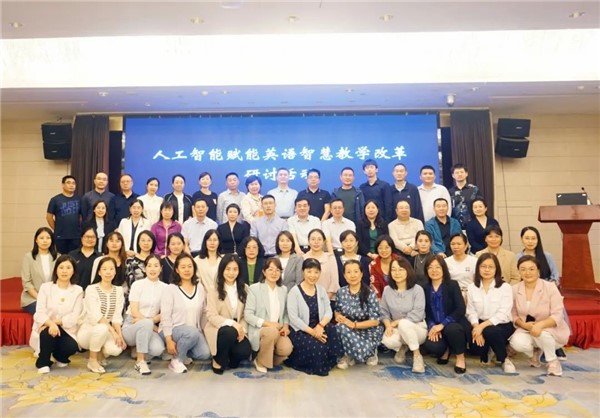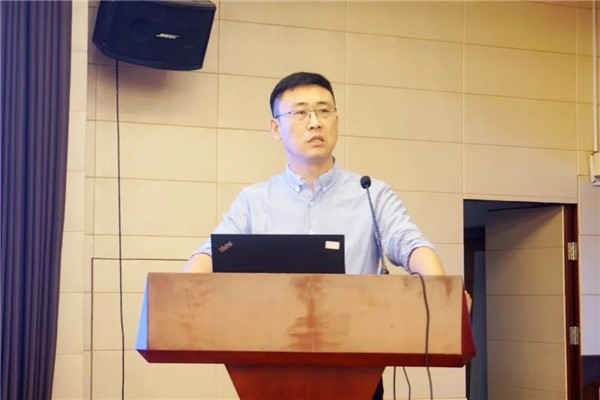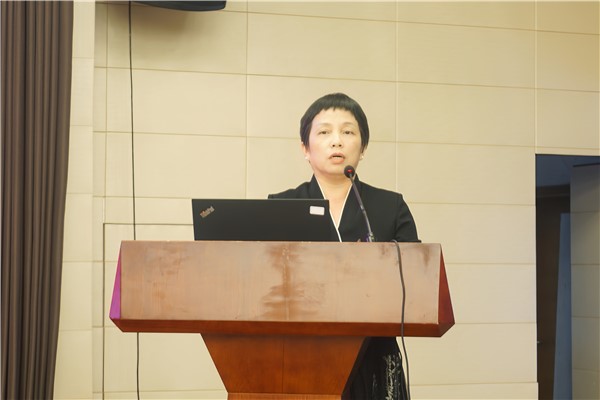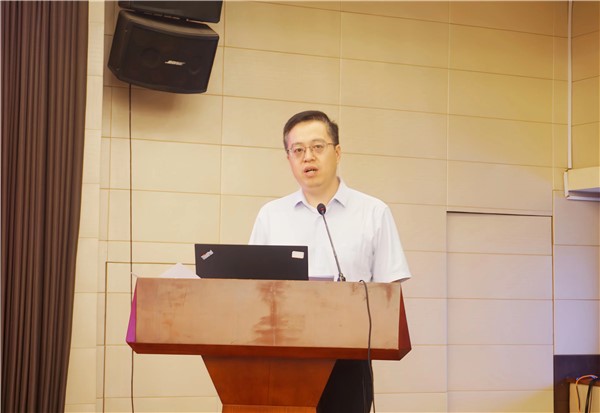 Recently, the Faculty of Foreign Languages at the Open University of China (OUC) hosted a seminar on AI-empowered Smart English teaching reform in Hefei, Anhui.
Recently, the Faculty of Foreign Languages at the Open University of China (OUC) hosted a seminar on AI-empowered Smart English teaching reform in Hefei, Anhui.
Among those in attendance were Chen Junping, vice president of Hebei Open University; Ji Wen, director of the Academic Affairs Office at Hainan Open University; and Wang Haiyang, director of the Academic Affairs Office at Hebei Open University. The event also welcomed over 60 participants from 13 pilot branches and the OUC Experimental School involved in the smart teaching reform. Attendees included project leaders and English teachers.


Zheng Jipeng, vice dean of the OUC Faculty of Foreign Languages, along with all the participants, viewed a video that reviewed the multi-model teaching reform from 2020. Delving into the fundamentals of AI-driven smart teaching reforms, Zheng highlighted the current progress of this innovative approach. He also shed light on specific findings from the investigative research across various branches. Further, he outlined the next steps for the ongoing teaching reforms. Zheng emphasised the importance of diligently implementing these reforms to achieve tangible outcomes. He believes that at a minimum, the reforms should foster innovative teaching in pilot projects and support the career development of the teachers engaged in this research.

Cheng Junping noted that Hebei Open University, as the only branch involved in the entire process of the pilot project for the multi-modal teaching reform of the general English course organised by OUC headquarters, has been implementing smart teaching for three consecutive years. With the support of the OUC Learning Network, FIF app, and http://www.pigai.org/, the university has provided teaching services marked by diversity, individuality, precision, and effectiveness. Hebei Branch is poised to seize this teaching reform opportunity to spur further reforms and innovations in more courses. This will undoubtedly elevate Hebei Open University to new heights, showcasing its unique features.

Ji Wen noted that in Hainan, the introduction of smart English teaching reforms serendipitously aligned with a campaign by the Hainan provincial-level Party Committee aimed at enhancing the foreign language proficiency of all its citizens in the free trade port. The Hainan Branch swiftly aligned its perspectives and priorities, ensuring that the teaching reforms yielded tangible results in various areas. She further mentioned that the Hainan Branch plans to leverage this English teaching reform by expanding the pilot programme in the current term. They intend to enhance teaching and learning platforms, foster team collaboration, meticulously gather and preserve teaching resources and outcome data, and develop a signature English course. Their aim is to ensure that these English teaching reforms not only produce concrete results but also underscore the dynamism of the Hainan Free Trade Port.

Wang Haiyang stated that the Hubei Branch placed great importance on and actively engaged in the AI-empowered smart English teaching reform project organised by the OUC headquarters. Through smart teaching practices, the Branch successfully enhanced its informatisation and intelligence literacy.
By Zhao Yanjiao, OUC